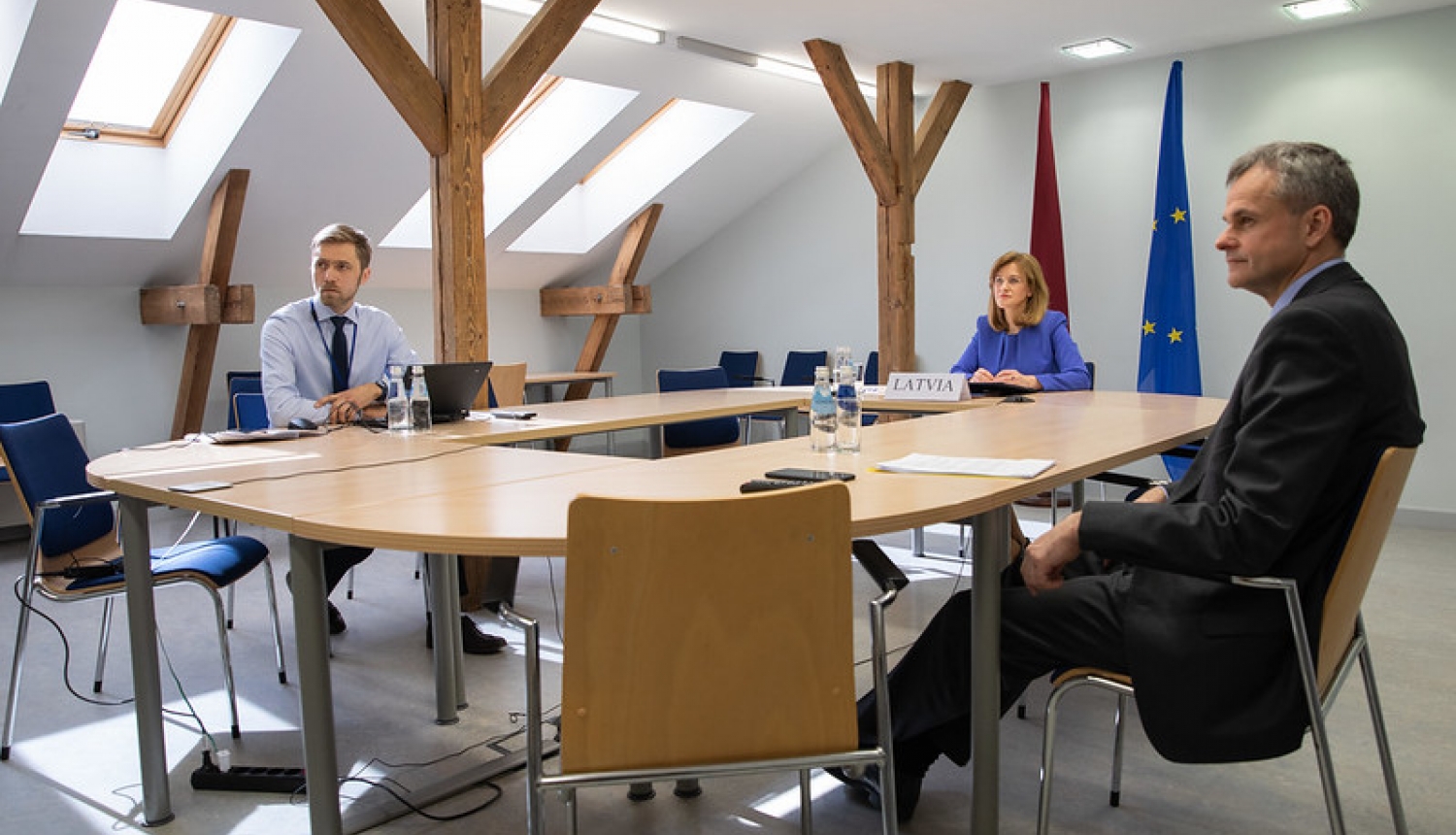On 16 April 2020, the European Union (EU) Foreign Affairs Council (Trade) had an informal video-conference meeting, at which Latvia was represented by the Parliamentary Secretary of the Ministry of Foreign Affairs, Zanda Kalniņa-Lukaševica. The participants had an exchange of views on the impact of COVID-19 on international trade and discussed actions to be taken to maintain the flow of trade.
The COVID-19 pandemic, in addition to its impact on public health, has caused an upheaval in global economy and trade, especially in the functioning of value and supply chains. The most glaring example involves the disruption in deliveries of critical medical supplies and personal protective equipment (PPE).
As is the case with each and every country, Latvia also is faced with complications in deliveries of goods and the negative impact of the economic downturn on sectors directly and indirectly affected by COVID-19, Zanda Kalniņa-Lukaševica emphasized in her remarks to the Council. The Parliamentary Secretary pointed out that the pandemic has clearly demonstrated vulnerability in the context of international supply chains. On behalf of Latvia, support was expressed for the proposal of extending by 30 days the exemption from the export authorisation requirements, namely, restrictions on export of personal protective equipment to third countries to prevent shortages of critical supplies.
As the discussion continued, the Parliamentary Secretary welcomed the European Commission’s (EC) initiatives to waive customs duties and VAT on the import of medical devices and protective equipment from third countries.
Other topics discussed were the functioning of the Foreign Direct Investment screening mechanism during the crisis and ways for EU Member States to cooperate on screening of investment cases. The Parliamentary Secretary welcomed the guidelines prepared by the EC to ensure a strong EU-wide approach to foreign investment screening and to preserve critically important EU assets and technologies during the COVID-19 crisis.
In order to reduce risks to deliveries taking place in the state of emergency, the Parliamentary Secretary called for long-term solutions to be sought alongside implementation of short-term measures, while pointing to the need for strengthening the EU’s industrial capacity and ensuring a smooth functioning of the Single Market. The Parliamentary Secretary underlined that at this point in time it is essential to be able to ensure a free flow of goods across the EU’s internal borders. We must be able to reinforce the EU’s Single Market, which is vital now and will also be vital after the crisis, she noted.
In the context of long-term solutions important for foreign trade, Zanda Kalniņa-Lukaševica underlined three priorities:
- to work with determination for diversification of EU import and export markets by entering into new free trade agreements;
- to strengthen digital economy by further development of EU legislation and international law;
- under this emergency, the Commission should pay an increasingly close attention to compliance with international trade rules on the part of EU trade partners and continue work on the strengthening of the World Trade Organisation (WTO).
As the discussion came to a close, the Parliamentary Secretary underlined that further action should be considered right away and stressed the need to counter protectionist tendencies even under the current circumstances. Zanda Kalniņa-Lukaševica also recalled current challenges such as the EU’s trade relations with the United States and the United Kingdom, the strengthening of the WTO, and achievement of a level playing field in trade with China.





